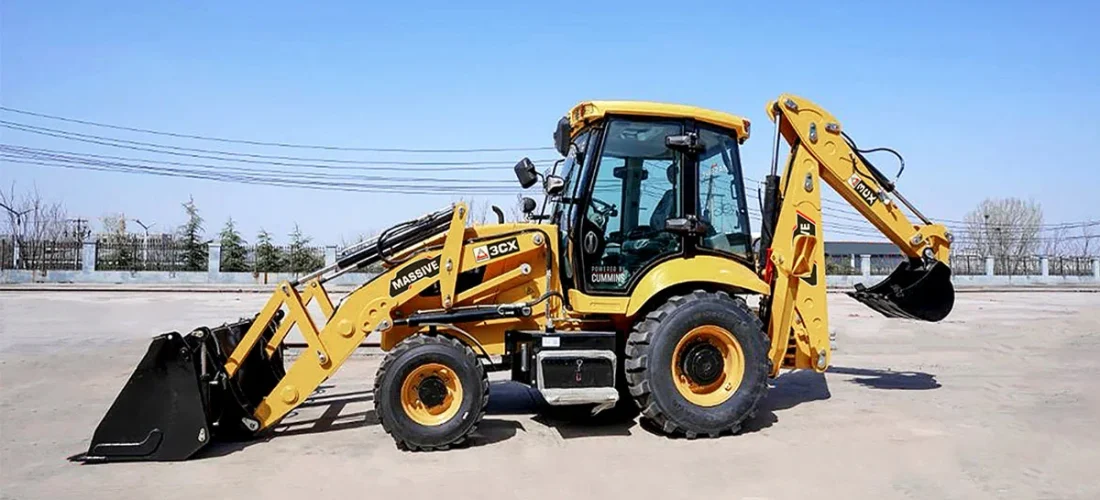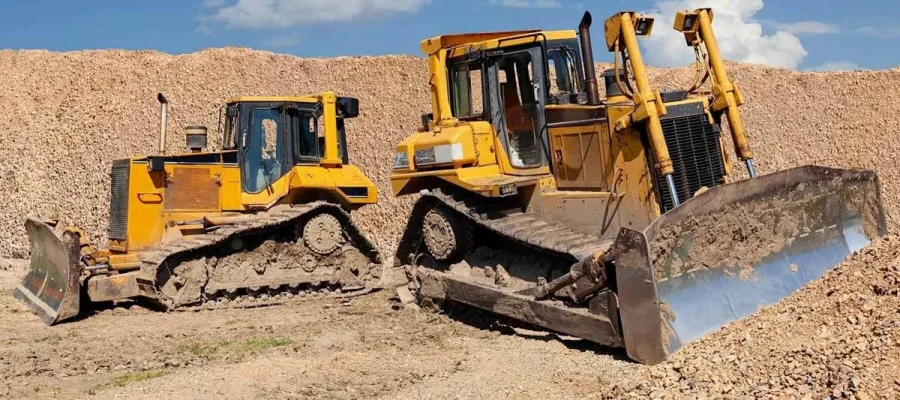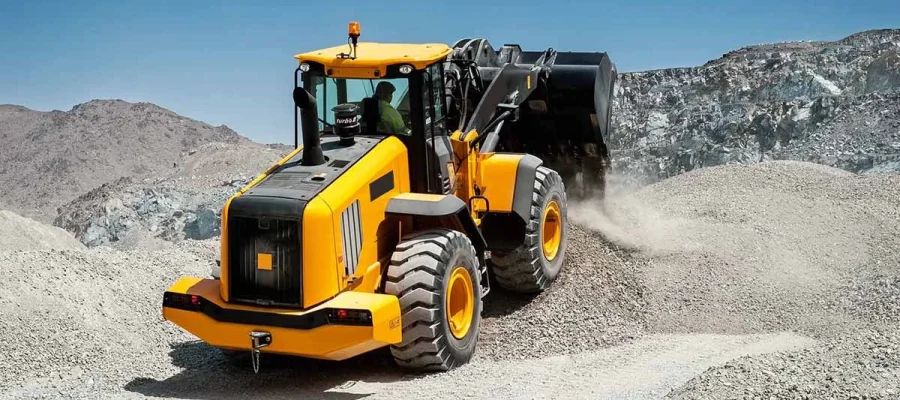
Ghana’s construction industry relies heavily on robust equipment like the Massive 3CX and 420 Backhoe Loaders to power infrastructure development across the country. However, the combination of intense heat, high humidity, and seasonal rains creates unique challenges for maintaining heavy machinery in Ghana. Proper maintenance isn’t just about extending equipment life—it’s about ensuring consistent productivity and avoiding costly downtime that can derail construction projects.
This guide provides practical strategies for maintaining construction equipment in Ghana’s demanding climate, with a specific focus on popular models like backhoe loaders that form the backbone of many construction operations.
Understanding Ghana’s Climate Challenges
Ghana’s tropical climate presents several maintenance challenges that operators must address proactively. The country experiences two distinct seasons: a wet season from April to October and a dry season from November to March. Each brings its own set of problems for heavy machinery.
During the rainy season, equipment faces constant exposure to moisture, leading to accelerated corrosion of metal components. The high humidity levels can cause electrical systems to malfunction and create ideal conditions for rust formation. Meanwhile, the dry season brings extreme heat and dust that can clog filters, overheat engines, and wear down moving parts more rapidly than in temperate climates.
Coastal areas experience additional salt exposure, which accelerates corrosion processes. Inland regions may face harmattan winds that carry fine dust particles capable of penetrating even well-sealed equipment compartments.
Essential Daily Maintenance Routines
Establishing consistent daily maintenance routines forms the foundation of effective equipment care in Ghana’s climate. These practices become even more critical when operating heavy machinery in Ghana’s challenging conditions.
Morning Pre-Start Checks
Begin each workday with thorough visual inspections of your equipment. Check fluid levels, including engine oil, hydraulic fluid, and coolant, as Ghana’s heat can cause rapid fluid evaporation. Inspect air filters daily during dusty conditions, as clogged filters force engines to work harder and run hotter.
Examine hydraulic hoses and connections for signs of wear or leakage. The Massive 3CX Backhoe Loader and Massive 420 Backhoe Loader both rely heavily on hydraulic systems that can be particularly vulnerable to contamination from dust and moisture.
End-of-Day Cleaning
Never underestimate the importance of cleaning equipment after each shift. Remove accumulated mud, dirt, and debris that can trap moisture against metal surfaces overnight. Pay special attention to undercarriages and hydraulic cylinders, where trapped debris can cause premature wear.
Use compressed air to blow out dust from cooling systems and air intake areas. This simple step prevents overheating issues that commonly plague equipment in dusty environments.
Fluid Management Strategies
Proper fluid management becomes critical when operating in Ghana’s extreme conditions. Heat accelerates fluid breakdown, whilst humidity can introduce moisture contamination that compromises system performance.
Oil Selection and Change Intervals
Choose high-quality lubricants specifically designed for tropical climates. These oils maintain their viscosity better under extreme heat and provide superior protection against moisture-related damage. Consider reducing oil change intervals by 25-30% compared to manufacturer recommendations for temperate climates.
Monitor oil condition more frequently using visual inspections and, where possible, oil analysis services. Dark, thick oil or the presence of metal particles indicates the need for immediate attention.
Hydraulic System Care
Hydraulic systems require particular attention in Ghana’s climate. The Massive 3CX and 420 Backhoe Loaders depend on these systems for their core functionality. Replace hydraulic filters more frequently than standard schedules suggest, as fine dust particles can quickly overwhelm filtration systems.
Keep hydraulic reservoirs topped up but avoid overfilling, as expanding fluids in hot conditions need room to accommodate thermal expansion.
Cooling System Optimisation
Engine overheating ranks among the most common problems facing heavy machinery in Ghana. Proper cooling system maintenance prevents costly engine damage and maintains operational efficiency.
Radiator and Cooling Fan Maintenance
Clean radiators daily when operating in dusty conditions. Use compressed air or soft brushes to remove debris from cooling fins, working from the engine side outward to avoid pushing contaminants deeper into the system.
Inspect cooling fans for damage and ensure they operate correctly. A malfunctioning fan can quickly lead to overheating in Ghana’s intense heat.
Coolant Management
Use coolant mixtures appropriate for tropical climates, maintaining proper ratios to prevent both freezing and overheating. Replace coolant according to manufacturer specifications, but monitor pH levels and contamination more frequently due to the harsh operating environment.
Check for leaks regularly, as even small coolant losses can have serious consequences in high-temperature operations.
Electrical System Protection
Ghana’s high humidity levels create significant challenges for electrical components. Moisture infiltration can cause short circuits, corrosion, and intermittent failures that are difficult to diagnose.
Moisture Prevention
Apply dielectric grease to electrical connections to prevent moisture intrusion. Ensure all electrical enclosures remain properly sealed, replacing gaskets and seals as needed.
Store equipment in covered areas when possible, and consider using moisture-absorbing materials in electrical compartments during extended storage periods.
Battery Maintenance
Batteries work harder in extreme heat, significantly shortening their lifespan. Check battery terminals regularly for corrosion, cleaning them with baking soda solutions when necessary. Ensure batteries remain properly secured, as vibration damage increases in harsh operating conditions.
Seasonal Maintenance Adjustments
Adapt maintenance schedules to Ghana’s distinct wet and dry seasons. Each requires specific approaches to keep equipment running optimally.
Wet Season Preparations
Before the rains begin, apply protective coatings to exposed metal surfaces. Increase inspection frequency for rust formation and address any corrosion immediately. Ensure drainage systems in equipment compartments function properly to prevent water accumulation.
Dry Season Focus
During dry periods, concentrate on dust prevention and heat management. Replace air filters more frequently and monitor engine operating temperatures closely. Apply extra lubrication to exposed moving parts that face increased friction from dust contamination.
Parts and Service Considerations
Maintaining adequate spare parts inventory becomes crucial when operating in remote areas or during seasons when parts delivery may be delayed. Focus on consumable items like filters, belts, and fluids that require frequent replacement in harsh conditions.
Establish relationships with reliable service providers who understand the unique challenges of maintaining heavy machinery in Ghana. Local expertise often proves invaluable for addressing climate-specific issues quickly and effectively.
Maximising Equipment Longevity
Successful maintenance of heavy machinery in Ghana requires dedication, proper planning, and consistent execution. The investment in regular maintenance pays dividends through reduced downtime, lower repair costs, and extended equipment life.
Whether operating a Massive 3CX Backhoe Loader on urban construction sites or deploying a Massive 420 Backhoe Loader for rural infrastructure projects, following these maintenance principles will help ensure reliable performance despite Ghana’s challenging climate conditions.
Remember that prevention costs far less than repairs. Operators can maintain productive, profitable operations by implementing comprehensive maintenance routines adapted to local conditions while protecting their substantial equipment investments.
For operators seeking reliable heavy machinery in Ghana, companies like Tractor Corner Ghana provide access to quality equipment backed by proper support services. Success in Ghana’s construction industry depends not just on having the right equipment, but on maintaining it properly for long-term success.


